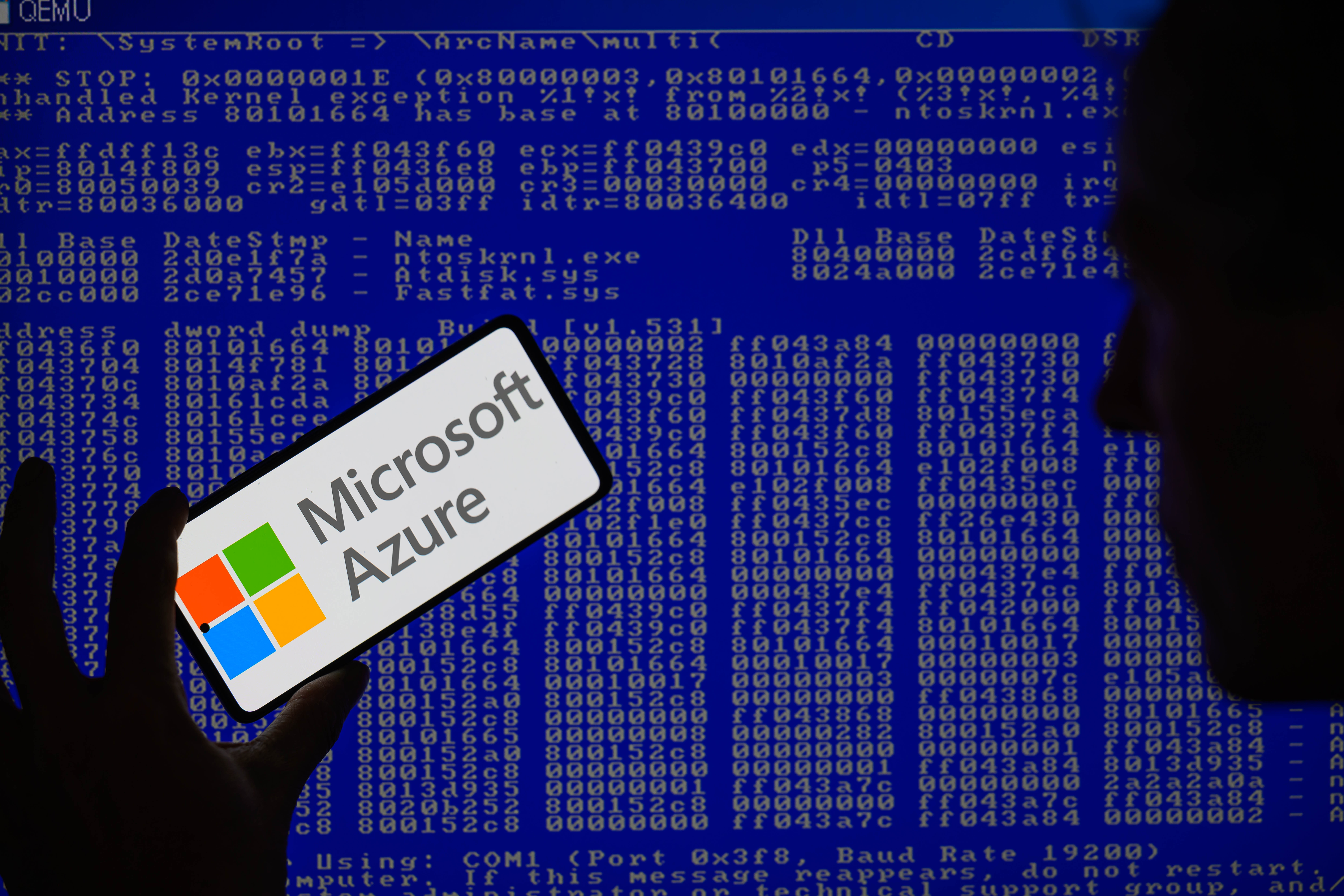Jesper Kyd's iconic work on Assassin's Creed 2 remains a gold standard for soundtracks
Jesper Kyd discusses his work on the Assassin's Creed series and what it was like returning with Valhalla.
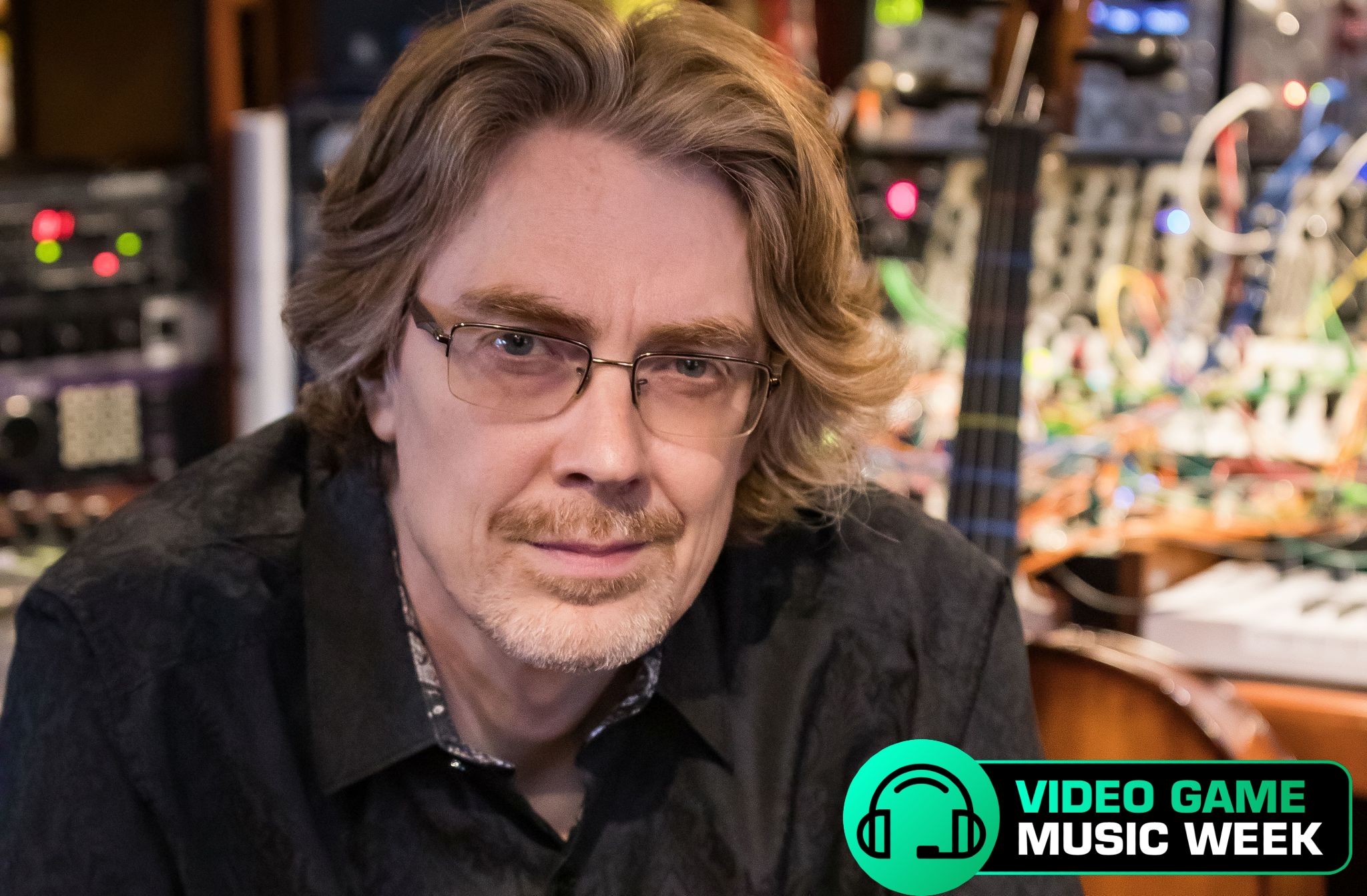
This week, we're celebrating video game music at Windows Central and iMore, from the tracks to the composers that created them. For more music appreciation, click here.
Video game soundtracks are the heart and soul of the whole experience. We all know what's about to happen when Leaving Earth plays in Mass Effect 3, harsh chords striking against the keys of a piano. We know to prepare when the music suddenly picks up in Skyrim, a telltale sign that a fight is about to begin. Soundtracks permeate nearly every aspect of a game, becoming iconic and synonymous with certain events, characters, and even just games as a whole.
Jesper Kyd's soundtrack in Assassin's Creed 2 is one of the few that I always keep coming back to, even 13 years after release. Not only did it elevate what I thought was already a masterpiece of a game, but its motifs have now followed the franchise for over a decade. Ezio's Family, in particular, has become the main theme of the series. It's an impressive legacy to leave behind, and I was fortunate enough to ask Kyd all about the creation of Assassin's Creed 2's soundtrack and some of his later work returning to the series.
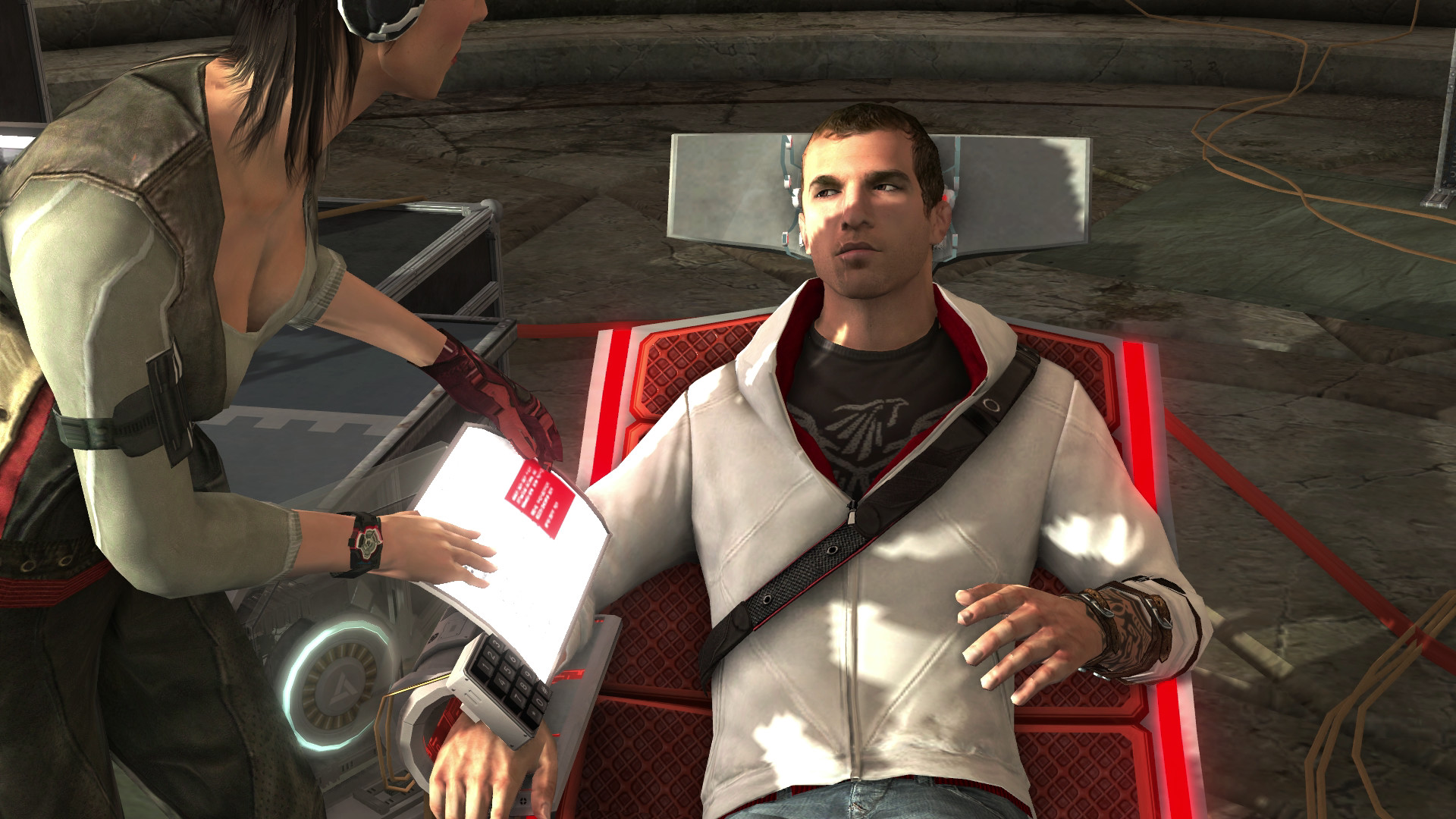
Though it remains a point of contention within the Assassin's Creed community, one of my favorite aspects of the series is how it blends sci-fi and historical elements. When I asked Kyd how he initially went about blending those elements to create a cohesive score when he was approached to compose the first game's soundtrack, he said that he knew it would be a challenge.
"The team came to me with three keywords: tragedy, war, and mysticism," Kyd says. "Writing a historical score for the Third Crusade in 1191, seen through the eyes of a time machine-like device called the Animus, which the game would be played through. So the music needed to help remind the audience that the game was played in a simulation. The historical music and all the authentic instruments and performances were filtered in a way to bring out the more sci-fi feel of the Animus."
"On top of all this, there were three major cities in the game, which required three different musical approaches," he adds. "I came up with composition rules and sets of instruments for each city so that the music would help remind you of which city you were in. And then there were the chases through the cities and on rooftops where the music needed to sound like the Animus was being pushed to the very limit with a screen tearing effect, supported by a more modern music style."
The way that Kyd managed to blend these two seemingly disparate themes has laid the foundation for the entire series, even as it's transported players from ancient Egypt and Greece all the way to the Industrial Revolution in England.
All the latest news, reviews, and guides for Windows and Xbox diehards.
Much of the music would need to change when moving on to Assassin's Creed 2 since it was primarily set during the Italian Renaissance. Still, the Animus continued to play an important role and helped to keep some of the sound consistent.
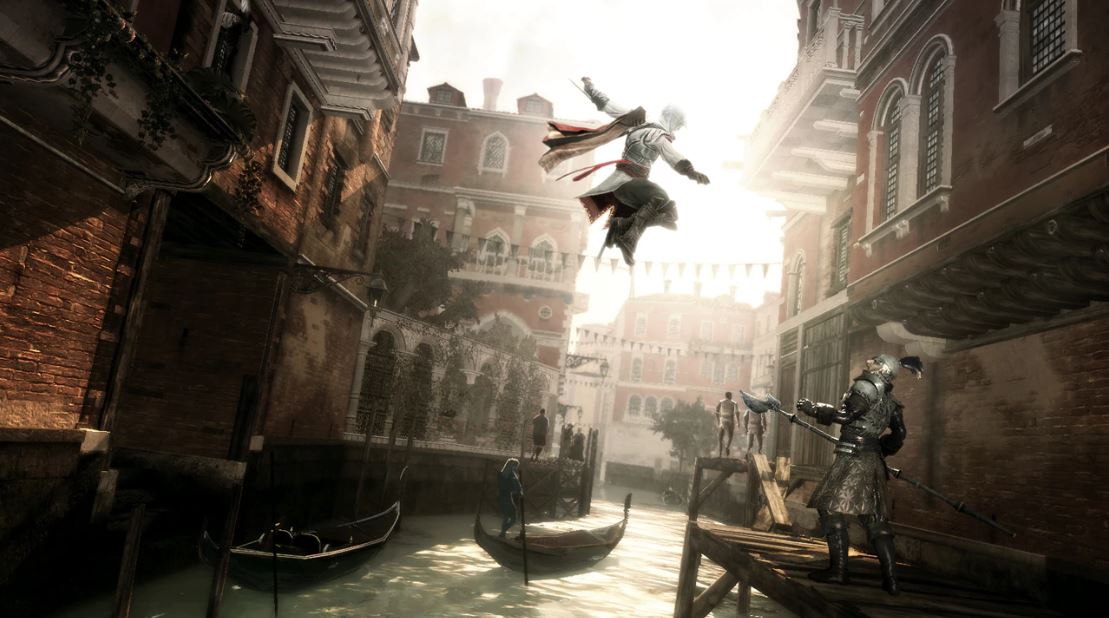
Kyd's ideology when approaching Assassin's Creed's soundtrack carried over to his work on its sequel, maintaining a core sense of mysticism while taking inspiration from classical music from the time period.
"We kept the idea of the Animus influencing the music with filters and sci-fi elements but started over with everything else," Kyd told me. "The early game test footage I was shown focused on creating a romantic and atmospheric mood, unlike anything I had seen before. A romantic mood for a stealth action game was a radical idea and we felt Assassin's Creed 2 needed its own sound. I focused on coming up with my own take on Renaissance music. Ubisoft didn't want a traditional score based on a music style from that period in time, they wanted me to reinvent the music from this time period into a more modern approach."
As the series continues to evolve, so too does its soundtrack. One of the tracks Kyd crafted in Assassin's Creed 2, Ezio's Family, was first created to symbolize the tragedy of Ezio losing his father and brothers, and as Kyd puts it, "It's about the embrace of change and evolving into whom you are meant to be, even if it's a painful transition." That theme has now evolved into one about the sacrifices of joining the Assassins Brotherhood.
Those who have played Assassin's Creed Origins will hear Sarah Schachner's rendition of Ezio's Family during a final scene where Bayek and Aya contemplate their past and decide to form the Hidden Ones, setting the stage for the Assassins Brotherhood that fans are familiar with today.
I've always felt that Ezio's Family was the perfect encapsulation of Ezio's journey and his struggles, delivering a hopeful yet tragic and somber score. Kyd, however, feels a little differently but for good reason.
When I asked Kyd which soundtrack pieces best define Ezio's story, he said Earth, as Ezio's Family was created as a symphonic version of Earth, which laid the foundation for Ezio's Family.
I've listened to Assassin's Creed 2's soundtrack countless times over the years, and while I always knew the similarities between the two scores, it never occurred to me that Earth was what influenced Ezio's Family. I always thought it was the other way around, which is ironic given its now permanent place as the series overarching theme.
With all this talk of Ezio's Family and its legacy, I wanted to know what song Kyd was most proud of. His answer surprised me.
"Access The Animus from the first Assassin's Creed has a special place in my heart," he says. "It's music for the intense parkour when being chased down by the guards. You have to scale city buildings to find safety in rooftop bungalows. We worked in great detail to get these systems in perfect balance with the music intensity and the music breaks away from the Third Crusade-inspired music into something more electronic, to support the Animus, reminding the player we are at the limit of the Animus' capacity with screen tearing."
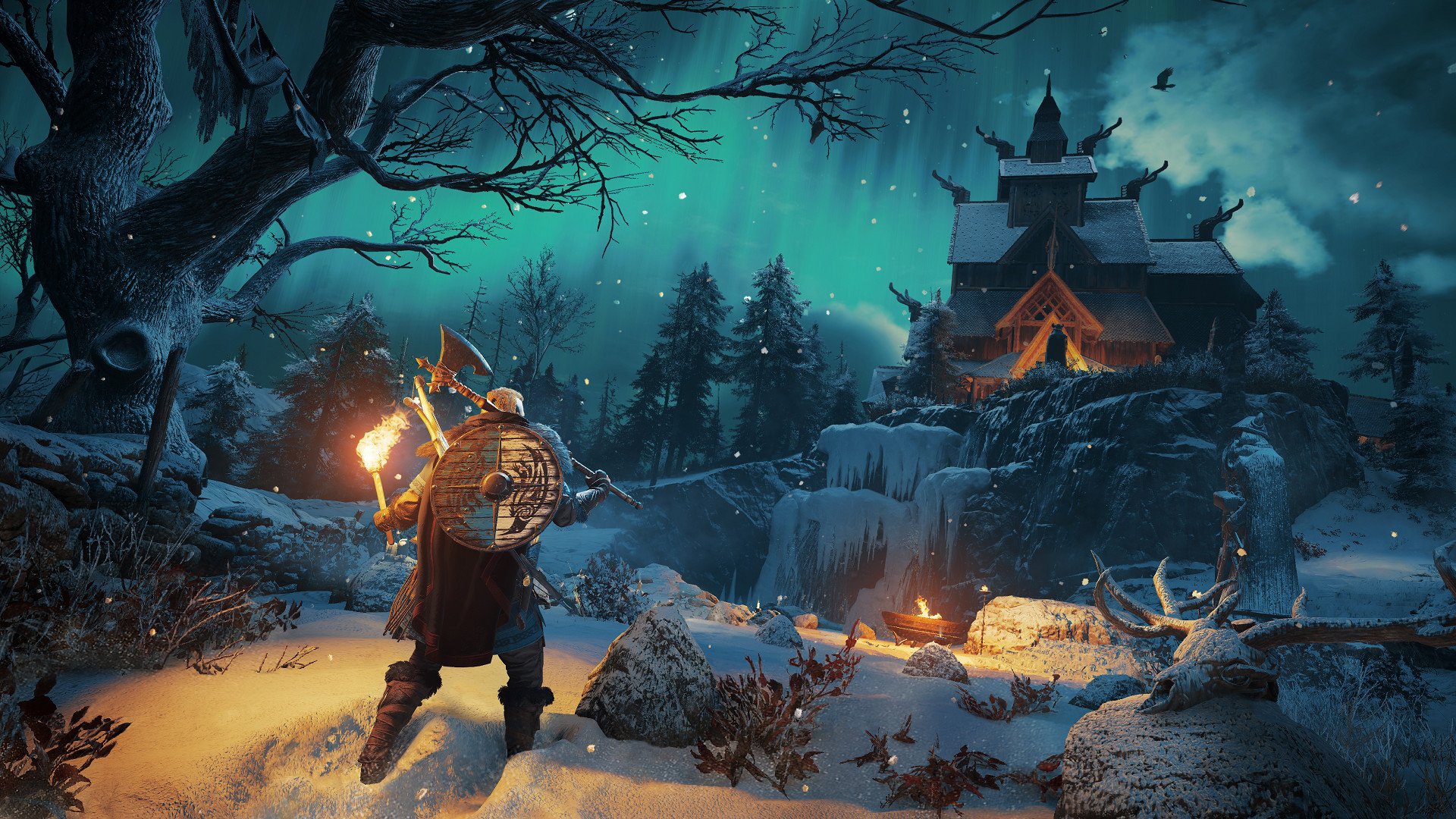
Following Assassin's Creed 2, Kyd would go to work on Brotherhood and Revelations before returning nearly a decade later with Assassin's Creed Valhalla. Because the franchise has drastically transformed over the years, I asked what it was like to jump back into the series and compose its score after leaving the Ezio Trilogy, and he noted how he needed to take a vastly different approach to his compositions.
"The Ezio Trilogy of games took place in cities and Valhalla takes place in huge nature environments; fields, mountains, and grasslands. The vastness of the world is incredible. So I wanted something really organic and mystical, something that could connect the player with the spiritual lifestyle of Viking culture, something where you felt the gods of Asgard were keeping an eye on you, while also connecting on a deep level with the nature surrounding the game," he says.
This certainly shines through in Valhalla's soundtrack, and that vastness is echoed in its length. Where Assassin's Creed 2's soundtrack is around 1 hour and 53 minutes, Valhalla's is nearly 2 and a half hours long (certainly to match the increased length of the game). But as the saying goes, you should always consider quality over quantity, and Kyd took great care in ensuring that Valhalla's music felt authentic.
Kyd said that one of his goals with Valhalla's music was to "base all the music in live performances." He went on to say, "I didn't want to add straight-up electronic music, but focused on creating something more realistic to the time period, like it was played by a Viking back in 872 AD. Then, all the processing, filtering, and sci-fi elements come into play because of the Animus. But this time I played all the instruments myself, which was a huge game-changer for me. I had to learn how to play a lot of different ancient instruments."
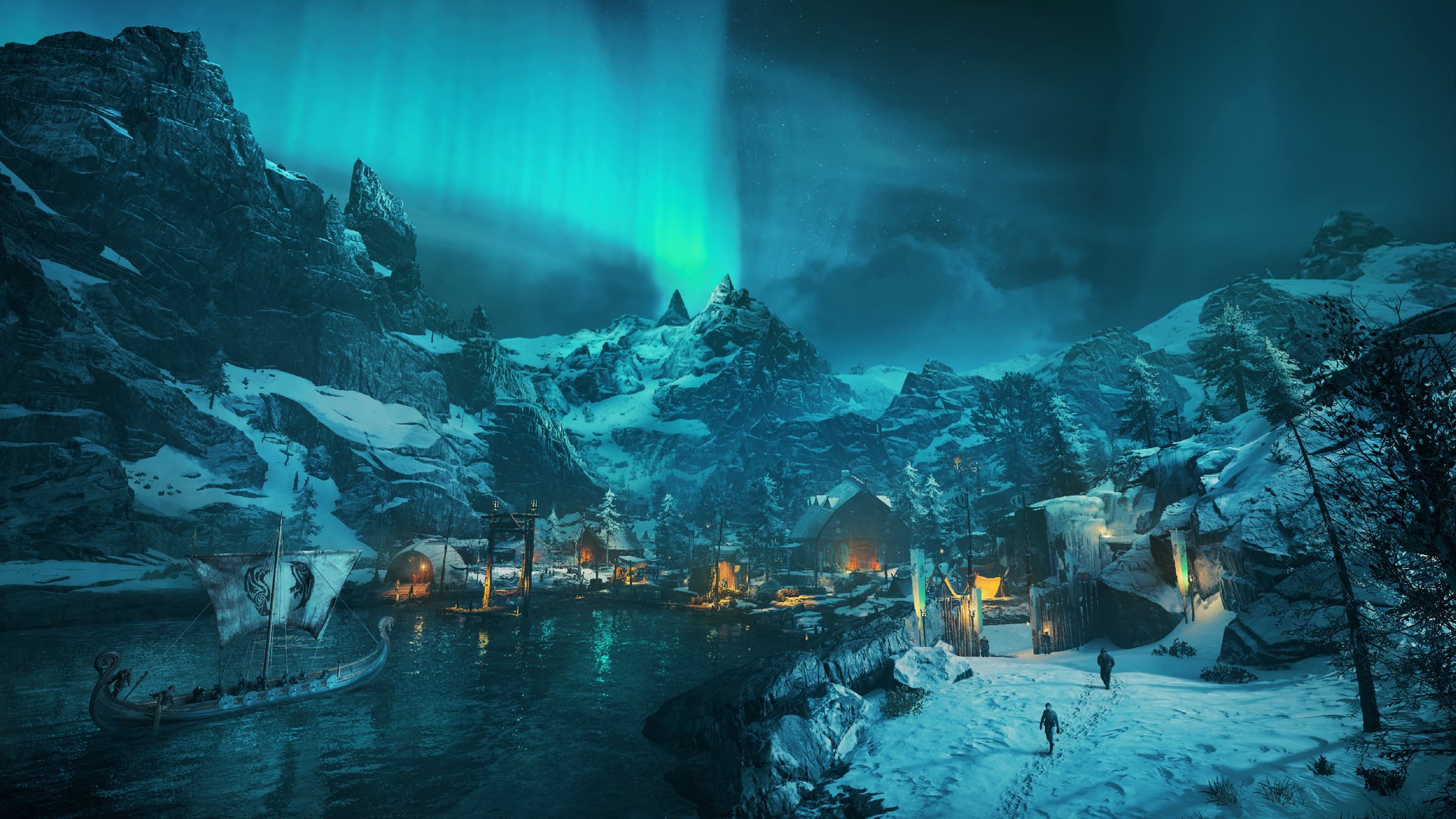
Kyd's dedication and passion for the craft are evident in each of his scores and the way he talks about them. Assassin's Creed wouldn't be the series it is today without Kyd and his immediately recognizable compositions. From the Third Crusade to the Renaissance and all the way to the shores of England during the 9th century, Kyd's work weaves throughout each story, exemplifying the time periods beautifully.
Though often overlooked, video game soundtracks are vital to the medium. It's said time and time again that music transcends language, and that rings true for all of Jesper Kyd's scores.

Jennifer Locke is a Former Contributor for Windows Central, having played video games nearly her entire life, and is very happy Xbox is growing a stronger first-party portfolio. You can find her obsessing over Star Wars and other geeky things on Twitter @JenLocke95.
